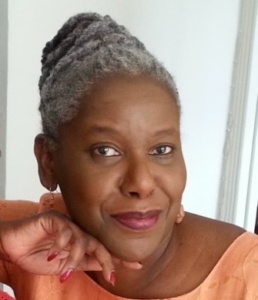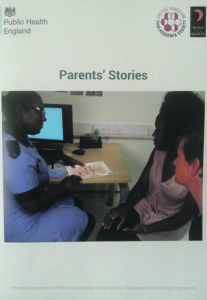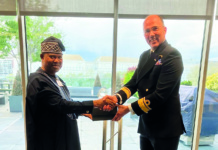
By Iyamide Thomas – For couples of African, Caribbean, Middle-Eastern, Asian or Mediterranean origin who might be at increased risk of having a baby with sickle cell or thalassaemia two serious genetically inherited blood conditions, it can be a very worrying time. England has a National Health Service Sickle Cell and Thalassaemia Screening Programme (NHSSCTSP) offering all pregnant women antenatal screening for sickle cell and thalassaemia.
If the woman is a ‘carrier’ (or ‘trait’) the baby’s biological father is invited too. (The NHSSCTSP also offers newborn screening for sickle cell). Antenatal screening enables parents to make informed choices based on information about the baby’s risk of inheriting sickle cell or thalassaemia, e.g. if both parents are carriers there is a 25% chance their baby could be born with one of the conditions. Timing is crucial to making informed choice so NHSSCTSP has prioritised improving the offer of screening to the mum-to-be so it is by 10 weeks of pregnancy and improving the offer of prenatal diagnosis (PND) – a diagnostic test done on the foetus in the womb – so it is by 12 weeks and 6 days of pregnancy.
 To determine any barriers affecting the timeliness of screening and PND offers and recommend ways of improving services, the NHSSCTSP worked jointly with Sickle Cell Society (SCS) and UK Thalassaemia Society (UKTS) on an ‘engagement project’. Elaine Miller of the UKTS and I conducted structured interviews with parents at risk of having a baby with sickle cell or thalassaemia, who volunteered to share their personal experiences of going through antenatal screening within the last five years.
To determine any barriers affecting the timeliness of screening and PND offers and recommend ways of improving services, the NHSSCTSP worked jointly with Sickle Cell Society (SCS) and UK Thalassaemia Society (UKTS) on an ‘engagement project’. Elaine Miller of the UKTS and I conducted structured interviews with parents at risk of having a baby with sickle cell or thalassaemia, who volunteered to share their personal experiences of going through antenatal screening within the last five years.
What Parents Said
Most women had told a healthcare professional (usually their GP) about their pregnancy early on and already knew their sickle cell or thalassaemia status before becoming pregnant. Most fathers also knew their status. Parents said some healthcare professionals did not have much knowledge of the conditions or the screening pathway and did not recognise the need for prompt referral to counselling and PND.
“Although we were given the wrong advice by the GP, once we were referred to the Sickle Cell and Thalassaemia Centre we had excellent support. The counsellor spent over 2 hours with us explaining about the risk to the baby and also about how thalassaemia can be managed.”
Some women were given wrong information or experienced delays. They wanted prompt referral, or ‘self-referral’, to specialist nurses and midwives at the Sickle Cell and Thalassaemia Centres as from their experience this sped things up.
“Both pregnancies were reported to my GP and I booked the midwife online as instructed. Appointments were quick and bloods were done within ten weeks. The midwife referral to the sickle cell centre for the first pregnancy was delayed by paperwork however for the second pregnancy the midwife told me to contact the centre myself so things could move quicker and they did”.
Parents also wanted:
• examples of positive outcomes for affected children
• referral to patient organisations who could find someone in the community to support them
• to meet individuals who were living successfully with the conditions
What Happens Next?
These parent stories are an invaluable resource for people commissioning services and working in the NHSSCTSP and have contributed to a report with recommendations for community organisations, the public and screening providers.
The public should keep presenting early in pregnancy or contact maternity services or specialist counselling services directly. They should also tell healthcare professionals that they want counselling and prenatal diagnosis and not assume that all healthcare professionals will know what they want!
“I am so grateful to those who have been willing to share their stories to make this happen. I am struck by the improvements that exist already between my experiences between 1997 and 2005 and those of the parents featured in the study. A very emotional read but in the context of the comprehensive discussion and guidance surrounding it all, one can be hopeful for the successful implementation and the improvements which will no doubt follow and will benefit our children in the future”. (Lynette –Project Advisory Group member with two children with sickle cell)
Elaine and I would like to thank the volunteers who shared their stories without which we will never have obtained such rich evidence.
Iyamide Thomas, is the Sickle Cell Society NHS Engagement Lead
For the full ‘Parent Stories’ go to:
UK Thalassaemia Society: www.ukts.org
NHS Sickle Cell & Thalassaemia Screening Programme: http://sct.screening.nhs.uk/












